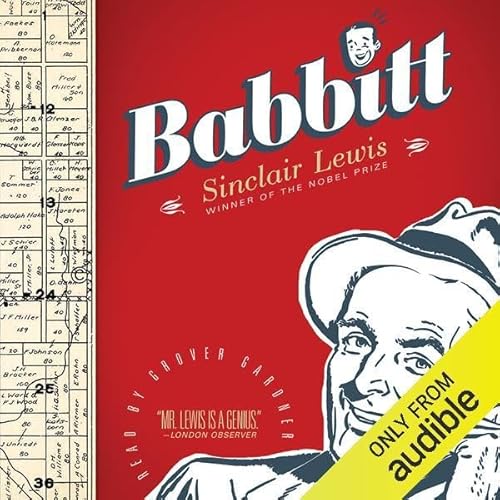
Babbitt
Impossibile aggiungere al carrello
Puoi avere soltanto 50 titoli nel carrello per il checkout.
Riprova più tardi
Riprova più tardi
Rimozione dalla Lista desideri non riuscita.
Riprova più tardi
Non è stato possibile aggiungere il titolo alla Libreria
Per favore riprova
Non è stato possibile seguire il Podcast
Per favore riprova
Esecuzione del comando Non seguire più non riuscita
Ascolta ora gratuitamente con il tuo abbonamento Audible
Dopo 30 giorni (60 per i membri Prime), 9,99 €/mese. Puoi cancellare ogni mese
Ascolta senza limiti migliaia di audiolibri, podcast e serie originali
Disponibile su ogni dispositivo, anche senza connessione
9,99 € al mese. Puoi cancellare ogni mese.
Acquista ora a 14,95 €
-
Letto da:
-
Grover Gardner
-
Di:
-
Sinclair Lewis
A proposito di questo titolo
On the surface, everything is all right with Babbitt’s world of the solid, successful businessman. But in reality, George F. Babbitt is a lonely, middle-aged man. He doesn’t understand his family, has an unsuccessful attempt at an affair, and is almost financially ruined when he dares to voice sympathy for some striking workers. Babbitt finds that his only safety lies deep in the fold of those who play it safe. He is a man who has added a new word to our language: a “Babbitt,” meaning someone who conforms unthinkingly, a sheep.
Public Domain (P)2011 Blackstone Audio, Inc.Recensioni della critica
“[It is] by its hardness, its efficiency, its compactness that Mr. Lewis’ work excels.” (Virginia Woolf)
Ancora nessuna recensione


